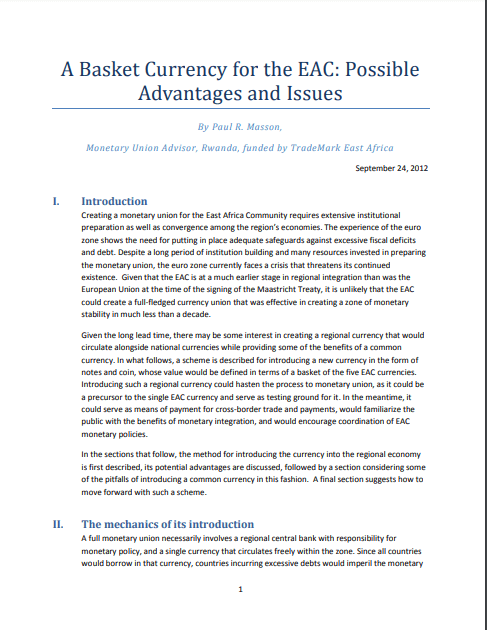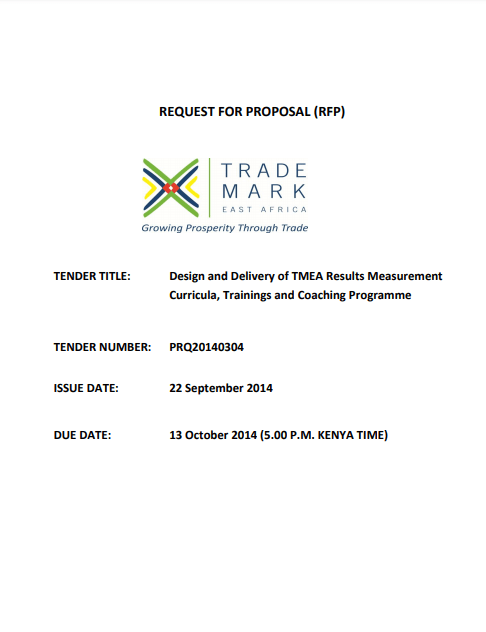Creating a monetary union for the East Africa Community requires extensive institutional preparation as well as convergence among the region’s economies. The experience of the euro zone shows the need for putting in place adequate safeguards against excessive fiscal deficits and debt. Despite a long period of institution building and many resources invested in preparing the monetary union, the euro zone currently faces a crisis that threatens its continued existence. Given that the EAC is at a much earlier stage in regional integration than was the European Union at the time of the signing of the Maastricht Treaty, it is unlikely that the EAC could create a full-fledged currency union that was effective in creating a zone of monetary stability in much less than a decade.
A Basket Currency for the EAC: Possible Advantages and IssuesPosted on: September 3, 2014
Posted on: September 3, 2014

















